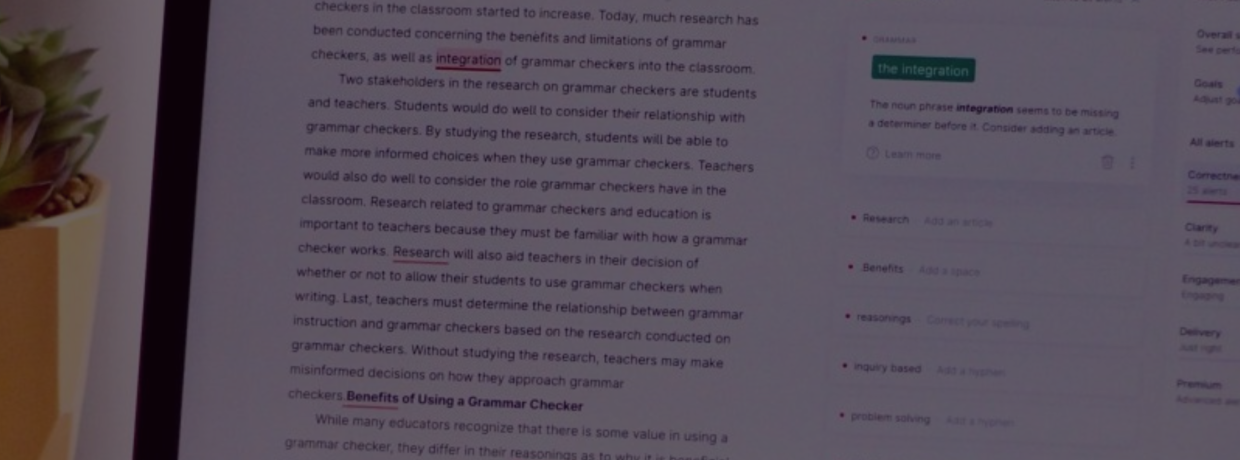
Subscribe to our newsletter!
We don't spam. You will only receive relevant and important tips for you and your business.
Unsubscribe anytime.
In the business world, there's usually a strong emphasis on SEO strategies, sometimes causing us to overlook the essential role of having solid grammar. But it's important to realize that achieving success in the digital realm relies on seamlessly weaving grammatically correct content into your website's strategy.
Think of it like a finely tuned orchestra – your website's impact hinges on the accuracy of its language. Are you ready to enhance your online presence, one grammatically sound sentence at a time?

Error-free content has a better chance of ranking higher in search engines. Not only do you want users to understand your content, but you also want Google to understand it.
While Google has stated that it doesn’t penalize for grammar or spelling errors, it has confirmed that reputable pages do have better spelling and grammar.
Matt Cutts, the head of webspam at Google, produced a video addressing grammar and SEO. He said that spelling and grammar are not included in the list of factors Google considers when ranking websites. He said it would be difficult for Googlebot to first decipher the language of the page and then differentiate between multiple languages.
But, Bing looks at the quality of website content.
“If you struggle to get past typos, why would an engine show a page of content with errors higher in the rankings when other pages of error-free content exist to serve the searcher? Like it or not, we’re judged by the quality of the results we show. So we are constantly watching the quality of the content we see.” - Duane Forrester, Bing
Correct grammar improves the experience users have on your website. When it comes to content, comprehension, and readability; these impact user experience. As users, we expect proper grammar and spelling. It’s a baseline and a sign of professionalism. Good grammar establishes credibility and will result in a better user experience.

A bad experience, in turn, will negatively affect a website’s ranking. While search engines may not have an algorithm for spelling and grammar (yet), they can detect bad user experiences. Website content with typos and bad grammar is unreliable and untrustworthy. Users will leave a website and go somewhere else if the content is poorly written which lacks credibility and is not worthy of any high ranking.
Authoritative sites will only link to a website if it meets their quality standard. The more authority a website has, the stricter they will likely be when proofreading and establishing links to other websites.
Try these three proofing methods for error-free content:
This will help you catch run-on sentences and misplaced words. Your ears will hear mistakes your brain missed.
Ask a colleague to give your work a once-over. No one’s perfect and often a fresh set of eyes will catch errors you may have missed.
After you’ve finished writing, take a break and step away from your computer. Take as much time as you need, then proofread your work. This will give you much-needed distance so that you can approach with a fresh perspective.
Grammarly and Hemingway are two of the many free digital writing assistants available.
Need help producing error-free content?